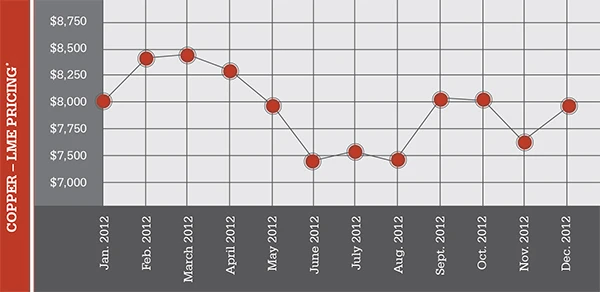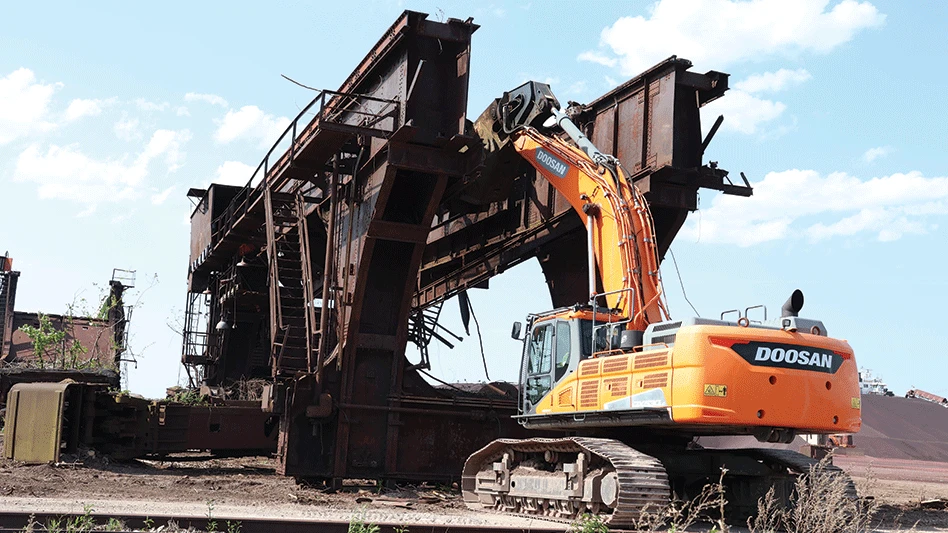
Nonferrous markets have begun 2013 in a moderately upbeat mood. Several scrap metal recyclers say that material is flowing at a decent pace.
“We are having no problem shipping to end sources,” one scrap metal dealer says. This is the case for most grades of nonferrous metal.
Another scrap dealer describes markets for nonferrous metals as “steady and stable.”
Recyclers who handle aluminum have cause for optimism in the form of Alcoa’s 2012 fourth quarter report, released Jan. 8, 2013. The company says it expects to see a moderately stronger aluminum market in 2013.
However, aluminum markets currently are challenging. Prices continue to be volatile, though several scrap metal recyclers point to healthy orders from consumers.
One consumer of aluminum scrap says he is receiving positive feedback from his customers through the first quarter of 2013. However, he says concerns linger among manufacturers about the overall health of the U.S. economy and the effects of a possible downturn.
A scrap dealer based in the Midwest also reports that industrial scrap generators are running solid production schedules, ensuring the steady flow of material. The challenge has been the supply of obsolete scrap, he says. Throughout the past several quarters, scrap dealers have said they have had to work much harder to get material they need to meet their orders.
Obsolete scrap generation typically declines during the first few months of the year, particularly in regions that experience frigid temperatures and snow. While several sources say generation is slightly higher this year than it was at the same time in 2012, scrap recyclers still are scrambling to meet orders.
Several sources have been speculating recently that most obsolete material already has entered the recycling stream and that less material is available. With the U.S. economy still sluggish, scrap dealers say they are concerned the overall supply of obsolete material will continue to be lower. Consumers also are replacing their automobiles and white goods less frequently.
As does aluminum, copper remains volatile. After a fairly healthy upswing in late 2012 and early 2013, copper prices have softened. In the middle of January, prices fell to two-week lows, influenced by macroeconomic factors, including a strengthening U.S. dollar.
A report in the Wall Street Journal notes that Federal Reserve Chairman Ben Bernanke has been a supporter of an “easy money” policy, which works to weaken the U.S. dollar, while strengthening base metals such as copper.
The copper scrap market also is being influenced by concerns about the health of the Chinese economy. China, the largest consumer of copper scrap, has seen its economy slow, though it is still growing far faster than the economies of most every other country.
While the Chinese economy may continue to soften in the short term, analysts say they expect that a large fiscal stimulus package being introduced by the Chinese government could help strengthen the country’s economy, which could result in better prices for copper.
In the meantime, several suppliers say copper scrap shipments to China have eased back in advance of Chinese New Year in early February.
The stainless steel scrap market continues to show signs of duress. One broker says markets remain weak, with few signs of improvement in the near term. European producers are still saddled with overcapacity and are not active in the market to any degree, sources say.

Explore the February 2013 Issue
Check out more from this issue and find your next story to read.





